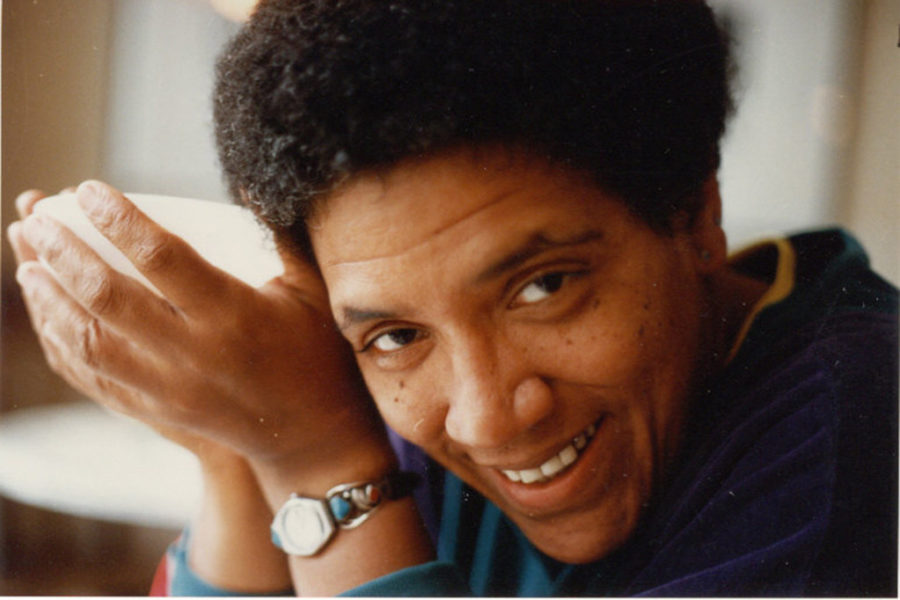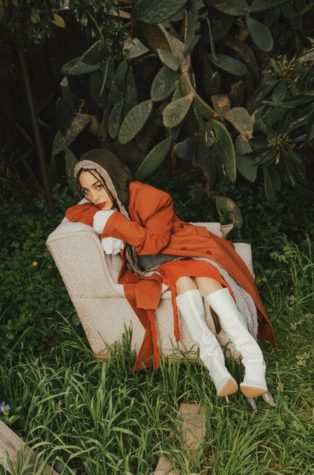Power: The Incredible Story of Audre Lorde
Audre Lorde is most known for her success as a writer, as well as her self-given title: “black, lesbian, mother, warrior, poet,” as she strived to fight for representation for people like herself. She is also known for her powerful soul and perseverance. She also was known for her writing regarding intersectionality within feminism – a form of feminism that the site “Unwomen,” describes as: “centers the voices of those experiencing overlapping, concurrent forms of oppression in order to understand the depths of the inequalities and the relationships among them in any given context.” Along with this, her poetry also addressed such matters as homophobia, racism, classism, and sexism.
Lorde was born in New York and was educated through Catholic schools, and beginning of her tween years, she took a liking to reading and writing poetry to encapture what she was feeling. This interest only increased as she began attending Hunter High School, and during her time as a student, Seventeen published a poem of hers, and from then on, her passion for poetry only grew.
“A kind of fury rose up in me; the sky turned red. I felt so sick. I felt as if I would drive this car into a wall, into the next person I saw. So I pulled over. I took out my journal just to air some of my fury, to get it out of my fingertips,” Lorde said.
While Lorde was in college, she began to explore her identity and eventually came out as lesbian, and became an active member of the LGBTQ community and riots in her area.
As Lorde balanced life as a working woman, she wrote about her experiences (as well as others) being in marginalized communities, such as black women, the LGBTQ, and the poor. But in 1962, Lorde was forced to sacrifice her identity and married Edwin Rollins, and with Rollins being gay, they chose to marry each other to protect themselves. But, luckily, both Rollins and Lorde allowed each other to have relations with others of the same sex.
In 1968, Lorde published The First Cities, her breakout poetry collection, this publication was noticed by Tougaloo College, and they reached out for her to become a Poet of Residence, a writer who desires to center their attention on their own work, while still being able to avoid a true commitment to any specific program.
“My sexuality is part and parcel of who I am, and my poetry comes from the intersection of me and my worlds… [White, arch-conservative senator] Jesse Helms’s objection to my work is not about obscenity … or even about sex. It is about revolution and change,” Lorde said.
Eventually, Lorde met and fell in love with professor Frances Clayton, who stayed by Lorde’s side throughout her many challenges. Lorde then became a professor as well, having to fight against the built-in discrimination common in the education system. Though, as several new courses emerged, Lorde found herself writing on and pursuing many of these studies. And as Lorde continued to teach, she was nominated for a National Book Award, and moved back to New York with her partner.
Later on, Lorde became a well-known writer to the American population – as she published Coal – successfully making her mark in the Black Arts Movement. But, unfortunately, Lorde was diagnosed with breast cancer, and as she was facing the struggle of her illness, she fought with herself as well, as she noticed the lack of black or lesbian cancer victims coming out. But this did not stop her fight. As Lorde became not only a poet but a full-fledged writer, in 1980, she published The Cancer Journals. In these journals, she discussed her condition and the taboo nature of it.
Lorde eventually began publishing more intense and personal writings, successfully causing the industry to truly notice her, though, years after beating her first bout of cancer – she learned it had now taken ahold of her liver. Though, she chose to tackle this hurdle in a new way, as she discusses her alternative treatments in her 1989 classic, A Burst of Light. Around this time she had moved on from her past girlfriend Frances Clayton and desired a new way of life – and started a new one on the U.S. Virgin Islands, and found a new partner: Gloria Joesph. And together, they created and funded many charities and activist foundations in their new location.
Later on, Lorde’s home and island were devastated by Hurricane Hugo, causing multiple deaths and injuries, and thousands were left homeless and abandoned. Then, both Joesph and Lorde decided to take a stand against the government and released Hell Under God’s Orders.
And just a little over 3 years later, Audre Lorde passed away on November 17th, 1992. And although liver cancer may have taken her life, it did not take away her impact or memory. As her fight continues to inspire and enlighten people around the world and instill a distinct power in them.

